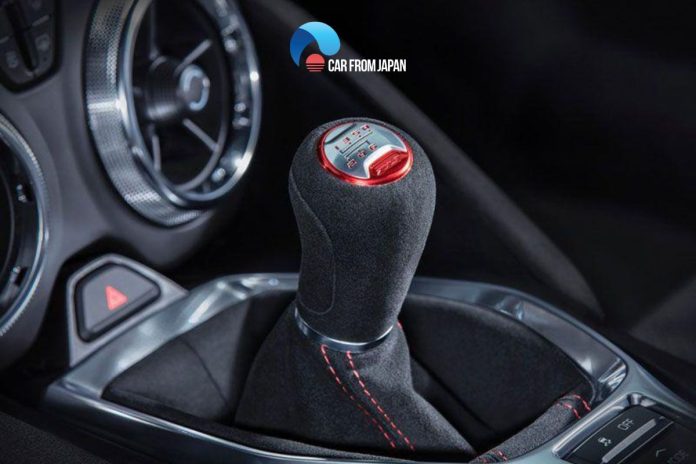How often do you hear that manual transmission is dying? Currently, the number of manual cars sold in the United States is less than 3% of the total car sales. Then, why are cars with manual transmission still being manufactured?
Once upon a time there was nothing but stick shifts and they were quite popular even 20 years ago. But, the skyrocketing popularity of automatic transmissions influences many brands to quit the production of manual cars.
Many automobile industry experts have predicted the demise of stick shifts in the next 15 to 20 years.
But, the interesting fact is a handful of renowned brands like Ford, Volkswagen, Cadillac, Mazda, Porsche, and others still produce some manual models. Why do these brands persist with the manuals?
Contents
- Reasons Why Are Cars with Manual Transmission Still Being Manufactured
- FAQs on Cars with Manual Transmission
- How do manual transmission cars compare in terms of cost?
- Are there any regulatory or environmental reasons for continuing manual transmission production?
- Are there any safety concerns associated with manual transmissions?
- What types of vehicles are most likely to offer manual transmissions today?
- Are there any downsides to driving a manual transmission car in modern traffic conditions?
- How does driving a manual affect resale value compared to an automatic car?
- Final Words
Reasons Why Are Cars with Manual Transmission Still Being Manufactured
The sales of manual cars are unlikely to gain traction again but they are not going to go extinct anytime soon, either.
Why?
It is because a small portion of consumers still enjoy driving manual cars. To them, choosing a manual does not depend on any financial or other factors. It is how they like to experience the driving of their cars.
Also, the following points contribute more or less to the manual cars. Why are cars with manual transmission still being manufactured? These are the reasons:
The Entry-Level Sports Cars
The buyers of these cars still want them in stick shifts. For example, 60% of buyers choose the Mazda Miata with a manual transmission despite the availability of an automatic version.
The same goes for the Ford Mustang as it is Ford’s top-selling manual-equipped car despite offering an automatic model.
Also, Ford chooses to keep the Focus RS and Fiesta ST full-manual and some other brands also follow the same route for some of the models.
It’s safe to say that automakers are not going to give up on manual transmissions soon.

SEE MORE: The Easy Way to Coast a Manual Car
Performance
Automatic transmissions have loads of fans and there are legit reasons for their popularity. But, their performance on smooth bitumen roads and off-road conditions is not the same.
A highly uneven surface like rutted or muddy road confuses an automatic transmission. With the changes in the surface conditions, it keeps changing the gears continuously and cannot engage its full power.
A manual car is free of this trouble. You can drive it the way you want irrespective of the road conditions.
Also, the automatics are less efficient than manuals in transmitting engine power to the wheels, which is a significant selling point for performance cars.
The manuals offer more control, less power loss, and allow a driver to apply the driving skills.
Repair & Maintenance
Wear and tear in manual transmissions is rare unless the car is too old or you run it without adequate oil.
The clutch may show signs of wear over time but repair is easier and less expensive than servicing an automatic gearbox.
With sufficient skills and knowledge, you can even do some repairs of a manual gearbox and clutch system in your garage but the automatic mechanism is more complicated.

FAQs on Cars with Manual Transmission
How do manual transmission cars compare in terms of cost?
Manual cars are generally cheaper than their automatic counterparts, both in terms of the initial purchase price and maintenance costs.
This affordability can attract budget-conscious consumers.
Are there any regulatory or environmental reasons for continuing manual transmission production?
While there are no specific regulations favoring manual transmissions, some argue that they may contribute to better fuel efficiency and lower emissions when driven optimally.
However, the impact is relatively small in modern vehicles.
Are there any safety concerns associated with manual transmissions?
Manual transmissions require more attention from the driver, which could potentially distract them.
However, with proper training and experience, this concern is generally mitigated.
What types of vehicles are most likely to offer manual transmissions today?
Manual transmissions are more commonly found in sports cars, some compact and economy cars, and certain trucks or off-road vehicles.
They are less common in larger sedans and SUVs.
Are there any downsides to driving a manual transmission car in modern traffic conditions?
Yes, driving a manual in heavy traffic can be more tiresome and less convenient due to the constant shifting.
Automatic transmissions are generally preferred for stop-and-go traffic.
How does driving a manual affect resale value compared to an automatic car?
Manual cars can have lower resale values in some markets because they appeal to a smaller segment of buyers.
However, rare or sought-after manual models can retain or even increase in value over time.
Check out this video from Donut to learn where did all the manual transmissions go!
Final Words
So, why are cars with manual transmission still being manufactured? It is because they have some unique advantages over their automatic counterparts.
They won’t go extinct until the automatics become easier to maintain and correctly determine the gear based on the road conditions ahead.




When driving a manual car, you feel “closer to the car” than automatic. You command than request. You feel more “spotic” behind the wheel than automatic.
I love the manual transmission though am not yet there,thanks for the knowledge